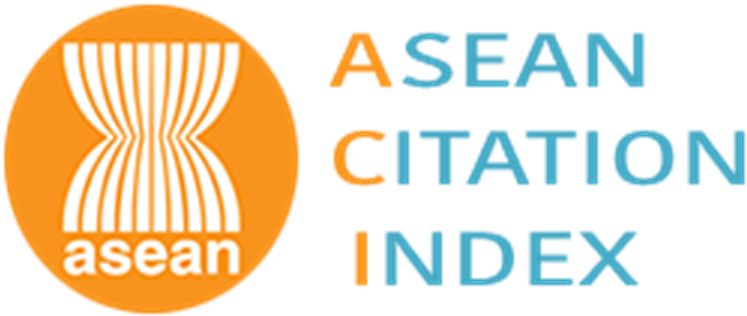การปรับปรุงประสิทธิภาพพลังงานโดยการจัดตารางแบบฮิวริสติกพลวัตในการจ่ายน้ำมันของคลังน้ำมัน
Energy Efficiency Improvement by Dynamic Heuristic Scheduling in the Fuel Distribution Process of the Fuel Depot
Abstract
งานวิจัยนี้นำเสนอการปรับปรุงประสิทธิภาพพลังงานโดยการจัดตารางการเติมน้ำมันให้กับรถบรรทุกน้ำมันที่เข้ามารับน้ำมันในคลังน้ำมันกรณีศึกษา โดยการจัดตารางการรับน้ำมันจะคำนึงถึงความสำคัญของปั๊มมากกว่าคำสั่งซื้อน้ำมัน และคำสั่งซื้อที่ถูกจัดตารางเป็นคำสั่งซื้อที่สามารถรับน้ำมันได้หลายชนิดในเวลาเดียวกัน ประกอบกับการใช้งานปั๊มที่ปั๊มแต่ละตัวสามารถจ่ายน้ำมันให้กับรถบรรทุกน้ำมัน 2–5 คันพร้อมๆ กัน ซึ่งกระบวนการจัดตารางจะเป็นแบบฮิวริสติกพลวัต (Dynamic Heuristic) โดยอาศัยกฎ Least Operation Remaining และ Largest Total Processing Time ในการจัดลำดับความสำคัญของใบคำสั่งซื้อ และการจัดตารางเวลาที่คำนึงถึงจำนวนหัวจ่ายที่ถูกใช้งาน งานที่เหลืออยู่ในระบบและการใช้พลังงานของปั๊มที่เปลี่ยนแปลงตามเวลา จากการจัดตารางด้วยฮิวริสติกพลวัตทั้งหมด 2 วิธี พบว่า ค่าพลังงานที่ใช้ต่อปริมาณน้ำมัน 1 ลิตรลดลงร้อยละ 42 จากการใช้พลังงานเฉลี่ยเดิม 0.42 วัตต์ชั่วโมงต่อลิตร เหลือเพียง 0.24 วัตต์ชั่วโมงต่อลิตร มีผลให้ประหยัดค่าใช้จ่ายด้านพลังงานเฉลี่ยของปั๊มเป็นจำนวนเงิน 199,006.25 บาทต่อเดือน ทั้งนี้การจัดตารางดังกล่าวดำเนินการภายใต้กระบวนการจัดตารางที่รู้จำนวนงานล่วงหน้าไม่มีการเปลี่ยนแปลงจำนวนงานระหว่างการจัดตารางที่ถูกออกแบบโดยการคำนึงถึงลักษณะทางกายภาพของคลังน้ำมันเป็นหลัก
This research demonstrates the improvement of energy efficiency by scheduling incoming trucks for at the filling stations in case studies. Filling-fuel scheduling is considered based on the pump’s usage rather than the fuel’s order. The orders consist of more than one fuel types, with different fuel volumes, the pump can handle 2–5 nozzles at the same time. The Dynamic Heuristic Scheduling is proposed based on the Least Operation Remaining and Largest Total Processing Time rules to prioritize fuel order and energy factors, used-fuel nozzle quantities, and work remaining in the system, which are changing all the time. With two dynamic heuristic methods, the energy for one-liter fuel was reduced by 42%, from 0.42 watt-hours per liter to 0. 24 watt-hours per liter. This resulted in pump energy cost reduction of 199,006.25 Baht per month on average. The scheduling technique is based on a stable ordering process in which there is no change in work quantities and orders during the scheduling. This method is designed by taking into account the physical characteristics of the fuel depot.
Keywords
[1] S. S Panwalkar, and W. Iskander, “A survey of scheduling rules,” Operations Research, vol. 25, no.1, pp. 45–61, 1977.
[2] P. Chutima, Operation Scheduling Techniques, Chulalongkorn University Press, BKK, Thailand, 2012 (in Thai).
[3] C. C. New, “Job shop scheduling: Is application of dispatching rules feasible?,” Journal of the Operational Research Society, vol. 26, no. 1, pp. 35–43, 1975.
[4] P. Phatapipong, P. Sachakamol, and A. Treerattrakoon, “Production scheduling using hybrid heuristics method: A case study of ready-mixed concrete plant,” Engineering Journal Chang Mai University, vol. 25, no. 1, pp. 226–233, 2018 (in Thai).
[5] T. C. Papadopoulou, “Application of lean scheduling and production control in nonrepetitive manufacturing system using intelligent agent decision support,” Ph.D Philosophy, Brunel University, Kingston Ln, London, Uxbridge UB8 3PH, UK, 2013.
[6] Y. Nakpathom, “A study of job shop production scheduling on textile industry,” M.S. thesis, Industrial Engineering and Management, Faculty of Engineering and Industrial Technology, Silpakorn University, Bangkok, 2012 (in Thai).
[7] S. Butdee, C. Numtong and P. Pareyai, “The hybrid heuristic scheduling for the best productivity,” in IE Network 2007, Prince of Songkla University, Songkla, 2007, pp. 1421–1426.
[8] A. Chaimanee and W. Supithak, “Flexible flow shop scheduling problem with sequence dependent setup time under just-in-time philosophy,” The Journal of KMUTNB, vol. 25, no. 2, pp. 220–231, 2015 (in Thai).
DOI: 10.14416/j.kmutnb.2023.12.002
ISSN: 2985-2145





